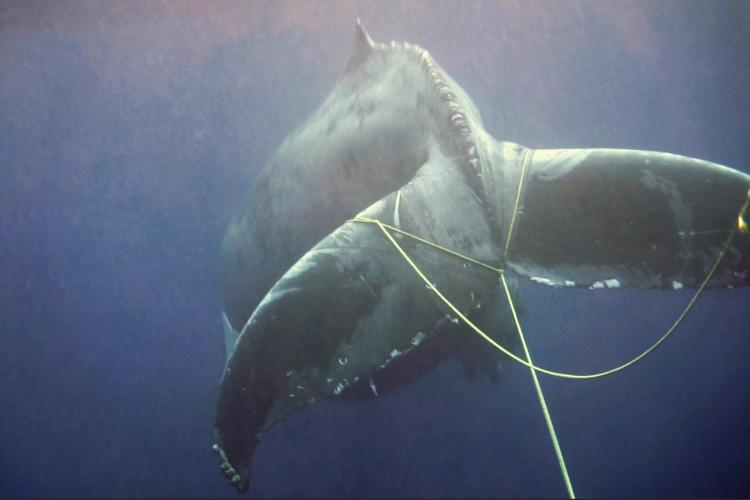Disentanglement training
The entanglement of cetaceans in fishing gear has been estimated to cause the deaths of nearly 300,000 cetaceans each year worldwide. Large whales are known to be susceptible to entanglement in nets and lines but can often be freed by appropriately trained personel. Globice Réunion and the Parc naturel marin de Mayotte / Office Français pour la Biodiversité (OFB) have partnered with the International Whaling Commission Expert Panel on Entanglement Response to train teams in French territories that will be capable of responding to these events. In June 2023 two training sessions were completed in Reunion and Mayotte, led by Michael Meÿer. Thirty people in total were trained in disentangling techniques during both theoretical and practical workshops and now have the skills to develop health and welfare protocols.
In 2019 the IWC led a similar exercise in Watamu on Kenya’s coast, in partnership with the State Department of Fisheries Kenya, the Watamu Marine Association and Kenya Marine Mammal Research and Conservation. In the spirit of continuing this critical training, the Kenyan team were invited to Cape Cod with the Center for Coastal Studies in June 2023 for a month. Lynn Njeri with the Kenyan Wildlife Service and Wildlife Research and Training Institute, and Michael Mwango’mbe with Kenya Marine Mammal and Research and Conservation, spent a week with the International Fund for Animal Welfare (IFAW) for stranding response training and then travelled to Provincetown to be on call alongside the MAER team at CCS. Both gained real-life experience, dealing with an entangled humpback whale in the Stellwagen Bank National Marine Sanctuary.
In March 2024, Watamu Marine Park in Kenya was the location chosen to host a refresher disentanglement training programme for 45 fishermen, including KWS vets for a rapid response stranding team pilot scheme. Many had been trained previously in 2019 following the IWC SC meeting held in Nairobi. The involvement of KWS vets capable of attending to sick, injured and dead animals is an important advancement and welcome addition to Kenya’s Welfare strategy for marine mammals, supported by the National Marine Mammal Foundation, WCS and IFAW.
As net entanglement and strandings reports continue to rise through increased public awareness, these sustained training efforts are welcomed from the IWC and partners.
As the regional focal point for the IWC expert panel on stranding response, Michael Meÿer is acting as the networks resource person within the IndoCet network and can be contacted for advice in case of an entangled whale. He can also be contacted to plan an IWC training session to participate in this ongoing effort to increase entanglement response capacity in countries from the South West Indian Ocean. An IndoCet webpage will be set up to report entanglement events from the region.
Contributors : Jane Spilsbury, Tim Collins
